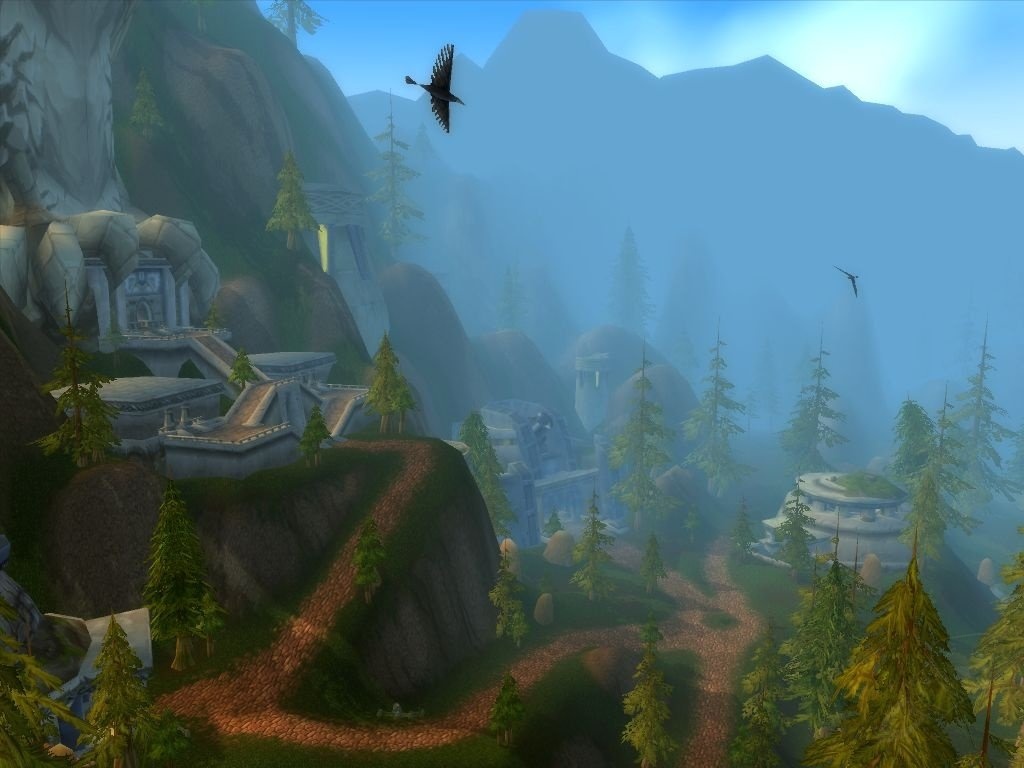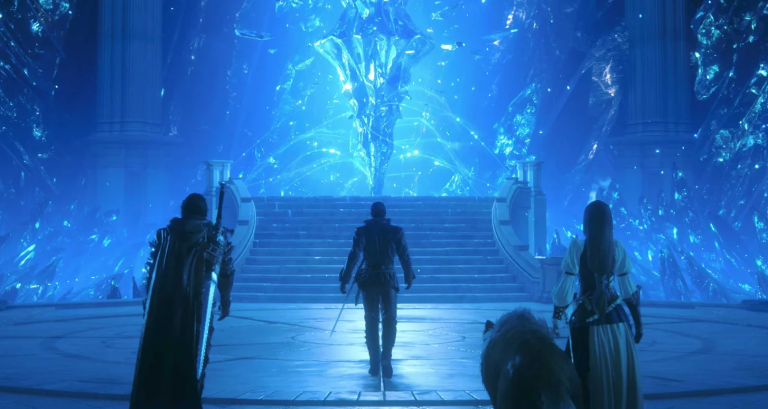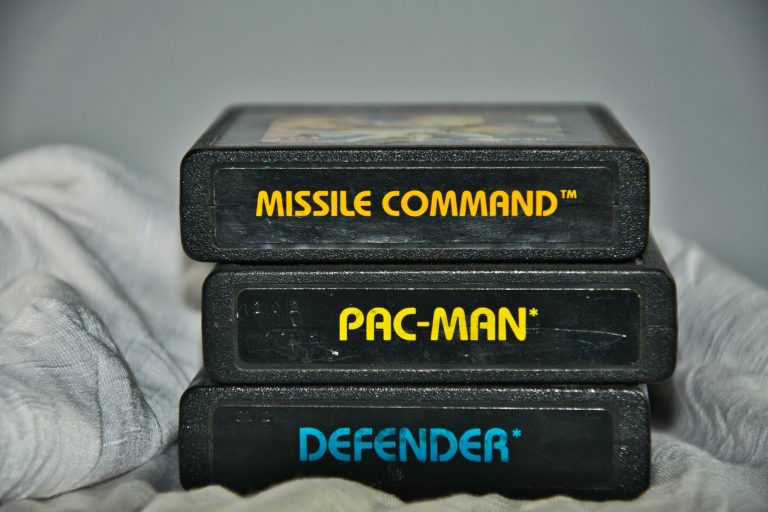10 MMORPG Games That Changed Your Life
MMORPGs, or Massively Multiplayer Online Role-Playing Games, have etched themselves into the hearts and minds of gamers worldwide, transcending the boundaries of ordinary gameplay. These immersive virtual worlds have the unique power to change lives, offering an escape, a community, and a sense of purpose to millions of players. In this article, we delve into the captivating realm of MMORPGs and explore the ten games that have left an indelible mark on the lives of players. From epic tales to monumental achievements, these titles have fostered communities, forged unforgettable adventures, and forever altered the landscape of the gaming universe.
The influence of MMORPGs extends beyond mere entertainment, encompassing elements of social interaction, exploration, and personal growth. Whether it’s forging alliances with other players, conquering fierce foes, or experiencing breathtaking narratives, MMORPGs have the power to immerse us in virtual worlds like no other gaming genre. Join us as we journey through the digital realms and share stories of transformation, camaraderie, and personal evolution as we explore the top ten MMORPG games that have changed your life.
10. Star Wars: The Old Republic
Set in the iconic Star Wars universe, is a MMORPG that has captivated players with its immersive storytelling and interactive gameplay. One of its standout features is the fully voiced story narrative, which brings the rich Star Wars lore to life in a way that few other games can match. Players have praised the engaging stories and the weight of choices, particularly highlighting the Agent class’s narrative. This aspect has had a profound impact on fans of the Star Wars franchise, as it allows them to become part of the galaxy far, far away, making choices that shape their unique journeys.
Additionally, the game’s community and guilds continue to thrive, offering players a welcoming environment. The easy-to-learn gameplay and the option to enjoy the game as a free-to-play experience make it accessible to a wide range of players. Star Wars: The Old Republic features diverse armors, toys, emotes, and weapons that can be customized, providing players with the freedom to express themselves in the Star Wars universe. The MMORPG also supports an active role-playing community, giving fans of the franchise a platform to live out their Star Wars fantasies. While there are some limitations to the free-to-play model, the game offers players various ways to immerse themselves in the Star Wars experience, and it has become a beloved part of the gaming landscape for fans of the franchise.
9. Eve Online
In the distant future, Eve Online unfurls a narrative rich in human history. The story begins with humanity’s relentless expansion due to explosive population growth and dwindling Earthly resources. As this journey unfolded, conflicts arose over the scarce resources, but everything changed when a natural wormhole was discovered, leading to an uncharted galaxy known as “New Eden.” Countless colonies blossomed, and a colossal gateway, bearing the inscription “EVE” on the New Eden side, was constructed to stabilize the wormhole, linking New Eden colonies with the rest of human civilization. However, the unexpected collapse of the wormhole and the monumental gate severed the connection between New Eden and the Milky Way. Isolated from Earth and its support, New Eden’s colonies faced scarcity and disconnection, leading to the decline and extinction of many settlements. Over the centuries, the descendants of survivors rebuilt their societies, but the collective memories of humanity’s origins and New Eden’s history were lost in translation or reduced to myths. Five distinct societies rose from the surviving colonies, forming the foundations of the four major empires in Eve Online: the Amarr Empire, the Caldari State, the Gallente Federation, the Minmatar Republic, and the enigmatic Jove Empire.
Eve Online’s narrative unfolds against this expansive backdrop of cosmic exploration and human adaptability. Players, as capsuleers in this vast universe, possess a unique agency to shape the destinies of these empires. They engage in epic battles, facilitate trade, and seek answers to the universe’s enigmas, where Earth’s distant history and humanity’s origins are veiled in myth and legend. This storytelling hallmark sets Eve Online apart, creating a dynamic and ever-evolving universe where the choices of individual players influence the destinies of these remarkable interstellar civilizations.
8. Lost Ark
Lost Ark, originally launched in South Korea in 2019, has made its grand debut in the Western gaming world, accompanied by high expectations and the support of Amazon as its publisher. The game unfolds in Arkesia, a vast and intricately designed world where players’ experiences are deeply shaped by their chosen starting class, offering a diverse range of options. The subclasses bring unique gameplay benefits, catering to various playstyles. Whether one prefers a ranged DPS role or excels in support roles, Lost Ark provides engaging choices, ensuring that no class feels out of place or suboptimal in any facet of the game. The game’s only peculiar restriction is the gender-locking of classes, where certain classes are exclusive to one gender, an aspect that some players might find somewhat limiting in terms of character customization.
Lost Ark’s narrative centers on a world on the brink of descending into deadly conflict, with the divided Ark of light being the focal point of power and the source of a precarious peace. Players embark on a quest to locate and reassemble the Ark to combat the looming darkness and restore harmony. The game’s story thrives on well-crafted characters like Armen and Thirain, whose depth and complexity captivate players and establish a strong emotional connection. Despite adhering to the typical narrative style found in fantasy MMOs, Lost Ark manages to surprise players with unexpected twists and turns. The storytelling shines through cinematic cutscenes, expertly instanced to immerse players in the heart of the story, a feature often lost in the crowded MMO landscape where every player feels like the main character. The storytelling is further enhanced by well-executed cutscenes, even by MMO standards. Players truly delve into the heart of Lost Ark’s world after reaching the soft level cap of 50 and completing the main storyline, opening up a world of exploration and endless possibilities to engage with. Whether your preference is for PvE, PvP, or role-playing, Lost Ark caters to all tastes and provides a rich and dynamic gaming experience.
7. Destiny 2
Destiny 2 excels in delivering a powerful PvE (Player versus Environment) experience, celebrated for its remarkable gunplay and top-tier combat mechanics, rivaling the finest shooters in the market. The game offers an extensive selection of activities, from alien battles to wielding powerful abilities and weapons, promising action-packed adventures. Endgame content, particularly Raids and Dungeons, continues to be the crown jewel of Destiny 2, providing players with challenging and rewarding experiences. However, Destiny 2’s most recent expansion, Lightfall, falls short of expectations, leaving players with a sense of disappointment, particularly concerning the quality of the storyline and writing. Nevertheless, the game’s PvE offerings still stand strong, offering a variety of captivating narratives and challenges, ensuring that the Destiny 2 universe remains a thrilling playground for both newcomers and seasoned Guardians alike.
6. Final Fantasy XIV
Final Fantasy XIV Online stands as a remarkable entry in the iconic RPG series, embracing all the elements that make Final Fantasy games truly special. While many previous titles excelled in turn-based combat and striking visuals, Final Fantasy XIV Online’s unique charm is in its evolution into a massively multiplayer online role-playing game (MMORPG). This transition introduces a world teeming with captivating storylines, brilliantly designed gameplay systems, lush settings, and an abundance of content. The game’s remarkable feature is the central role it assigns to your created character in the unfolding narrative. This isn’t just an MMORPG; it’s a vibrant story where your avatar is the protagonist. The most recent expansion, Shadowbringers, amplifies the game’s treasure trove, introducing new regions, captivating plotlines, and gameplay enhancements. With a deep love for the series and its fans, Final Fantasy XIV Online manages to capture the essence of Final Fantasy, making it an unmissable experience.
Shadowbringers’ tale transports players to Norvrandt, a realm bathed in light and overrun by light-spawned monstrosities. In this land, the survivors have found refuge in the sanctuary of Crystal Tower and the barrier-shielded city, the Crystarium. Meanwhile, others reside in Eulmore, an opulent tower city filled with affluent nobility indulging in hedonistic revelry as they await an impending catastrophe. What sets this MMORPG apart is the compelling narrative, as the story takes center stage and guides you through a richly woven plot. Your character plays a pivotal role in the game world’s development, and this connection is steadily nurtured throughout your journey. The writing and dialogue in the game are outstanding, offering a rich narrative steeped in political intrigue, supernatural elements, and an expansive lore. As you delve deeper into the story via the Shadowbringers expansion, you’ll find numerous references to previous games and an intricate plot that is both nostalgic and accessible, even to newcomers. While the journey can sometimes feel like a slow burn due to level requirements, the investment pays off in the form of a deeply immersive and involving narrative that distinguishes Final Fantasy XIV Online as a standout entry in the series. The robustness of the story is complemented by exceptional writing, creating an MMORPG that places character growth and development at the forefront, forging an unparalleled connection between players and the game’s universe. Whether you’re new to the series or a long-time fan, Final Fantasy XIV Online’s storytelling is a standout feature that will draw you into its immersive and nostalgic world.
5. Everquest
EverQuest invites players to embark on a grand adventure in the enchanting realm of Norrath, divided into three diverse continents: Odus, Antonica, and Faydwer, each hosting unique cities and races. This vast world comprises approximately seventy expansive regions, promising an immense and immersive journey that would take days to explore fully. Character creation offers an array of options, from selecting one of twelve races and fourteen professions to distributing ability points and choosing a deity. The game’s interface, initially overwhelming, proves powerful once mastered, enabling real-time party adventuring and a variety of quests. EverQuest handles player-killing issues by giving players the choice to engage in player vs. player combat, providing a dynamic and captivating experience both visually and aurally, despite initial network challenges.
EverQuest’s early hiccups didn’t diminish its addictiveness, and its evolving nature bodes well for fans of online RPGs. With a subscription fee of $9.89 per month, it continues to deliver a compelling and enduring adventure in the massive world of Norrath.
4. Runescape
RuneScape, first introduced in 2001 during the early era of MMORPGs, offered a unique advantage as a browser-based game, allowing players, including students at school, to access it conveniently. Over the years, the game underwent significant evolution as any service-based game does, with not all changes being universally well-received. This discontent eventually led to the creation of Old School RuneScape (OSRS) in 2013, which essentially preserves the game as it existed in late 2007, while introducing a novel approach to player-driven change. In OSRS, developers propose changes to the player base, who vote on whether these changes are implemented, thus fostering a player-centered relationship with the game’s evolution.
Old School RuneScape provides a familiar MMORPG experience, with a monthly subscription fee of $10.99, but it offers the flexibility to purchase multiple months at a reduced cost. The game begins with character creation and a tutorial, followed by a world filled with diverse goals, skills, items, and quests. OSRS has an extensive player-driven resource in the form of a wiki, as well as video tutorials, which empower players to explore the virtual world in-depth. The recent introduction of a mobile client enhances accessibility, allowing players to enjoy the game on the go and bridging the gap between mobile and PC gaming. OSRS offers a refreshing departure from the disposable mobile game experiences and encourages players to delve into a world of depth and discovery, offering meaningful character advancement. The game’s cross-platform functionality further ensures a seamless and connected gaming experience across various devices.
3. Guild Wars 2
Guild Wars 2 has redefined MMO expansions by focusing on content, horizontal progression, and novel mechanics instead of vertical gear grinding. While Heart of Thorns introduced gliders and Path of Fire brought unique mounts, End of Dragons distinguishes itself by offering no groundbreaking features but excelling in delivering beloved settings, ambitious maps, and outstanding gameplay.
End of Dragons’ engaging story starts with an exhilarating assault on airships, leading players to the technologically advanced region of Cantha, which had been secluded from the outside world for centuries. Cantha offers visual diversity, featuring a range of maps, from lush forests to high-tech cities. The expansive, fully explorable city map, New Kaineng City, with its neon-covered streets and holographic images, impresses visually but falls short in terms of population density, missing the feel of a bustling metropolis.
The expansion introduces new traversal mechanics, including the two-player turtle mount, skiffs for water travel, and a fishing system. While these additions enhance the gaming experience, the requirement to charge the Jade Bots, used for interaction with Jade Tech devices, can feel tedious. However, the fishing system adds a fun and rewarding diversion. End of Dragons may not introduce marquee mechanics like previous expansions but offers smaller features and systems for players to explore. The campaign, while featuring charming characters, maintains an above-par storytelling level, with standout moments found in world-building within the maps. The expansion excels in providing diverse gameplay, with missions involving more than just combat, improving the overall story experience.
End of Dragons enhances boss encounters, providing unique and complex mechanics, preparing players for challenging endgame content. Each profession receives a new specialization and weapon, offering fresh gameplay experiences. Despite lacking a single standout feature, End of Dragons stands out for its variety, engaging campaign, beautiful maps, and challenging bosses, making it a compelling expansion for Guild Wars 2 enthusiasts.
2. Elder Scrolls Online
The Elder Scrolls Online (ESO) offers a lengthy and engaging experience with its 100-hour main story, reminiscent of the single-player Elder Scrolls games in many ways. It successfully integrates unique twists and cameos of important figures from the Elder Scrolls lore. The final boss encounter exceeds the challenges of some single-player games and hints at promising content in the Veteran levels beyond level 50.
Quests in ESO reflect the essence of the Elder Scrolls series, taking you on adventures to explore caves, ruins, and interact with various characters. These quests are fully voiced, enhancing immersion, although the quality of voice acting varies. However, the presence of multiple adventurers pursuing the same quests can be a departure from the single-player feel. Nonetheless, the quests encompass combat, puzzles, and decisions that affect NPC interactions, maintaining the series’ signature essence.
ESO boasts a world encouraging exploration, with Skyshards, hidden quests, and lore scattered throughout the land. The environment invites thorough exploration, offering a rewarding experience for players who enjoy rummaging through crates and interacting with NPCs. While the game exhibits a unique combat system inspired by the single-player Elder Scrolls games, its graphics may not match the standards set by other modern MMOs.
1. World of Warcraft
World of Warcraft’s most recent expansion, Dragonflight, successfully rekindles the spirit of exploration and adventure that has been a hallmark of the franchise. It embraces the MMORPG’s core essence by allowing players to chart their own paths in an expansive and visually stunning world. The enchanting locales, such as The Waking Shores, provide the backdrop for some of the game’s most captivating side quests, showcasing the art of storytelling at its finest.
While the initial journey is a delight, Dragonflight manages to maintain the sense of engagement even after reaching the level cap. The introduction of the Dracthyr Evoker class brings a fresh dimension to gameplay, offering exhilarating dragon-themed abilities that add a layer of excitement. The innovative dragon riding system, with its sense of momentum and physicality, sets a new standard for traversing the world of Azeroth. Its challenge courses, while thrilling, could benefit from improved control options.
Despite the more traditional elements, Dragonflight delivers a compelling and immersive experience that captivates both new and seasoned players. The expansion succeeds in celebrating the heart of WoW, embracing the essence of exploration, and leaves players eager for more adventures in the ever-evolving world of Azeroth.
Embracing the Adventures
In conclusion, the MMORPG landscape is a diverse realm, home to numerous expansions, each vying to capture the hearts of its players. While each expansion offers its own unique blend of features and content, the common thread that binds them is the pursuit of immersive and engaging gameplay experiences. Whether delving into the epic saga of the Guild Wars 2: End of Dragons expansion, venturing into the epic quests of The Elder Scrolls Online: A Guided Epic, or soaring through the awe-inspiring world of World of Warcraft: Dragonflight, these titles represent the evolving spirit of MMORPGs.
Guild Wars 2’s End of Dragons expansion serves as a testament to the enduring appeal of the game, where lush and visually diverse maps await players to explore. Its ambitious content, including thrilling new mechanics and challenging boss encounters, offers a fresh experience for fans. The Elder Scrolls Online takes a creative leap with A Guided Epic, delivering memorable quests and a rich, narrative-driven world. It showcases the potential of MMORPGs to blend epic storytelling with the freedom of exploration. Finally, World of Warcraft’s Dragonflight expansion pays homage to the franchise’s adventurous roots, offering both exciting new features like the Dracthyr Evoker class and the exhilarating dragon riding system.
While each of these expansions has its own strengths and areas for improvement, they all demonstrate the enduring vitality of the MMORPG genre. As these virtual worlds continue to evolve and expand, players will have even more opportunities to lose themselves in the vast landscapes and rich narratives that define MMORPGs. The adventure never truly ends in the realm of MMORPGs, and with each expansion, these games continue to offer exciting new experiences and challenges to eager players around the world. So, whether you’re swashbuckling in the skies of Cantha, embarking on a grand quest in Tamriel, or soaring above Azeroth’s grand vistas, MMORPGs are primed to captivate players with their boundless potential for exploration and adventure.






